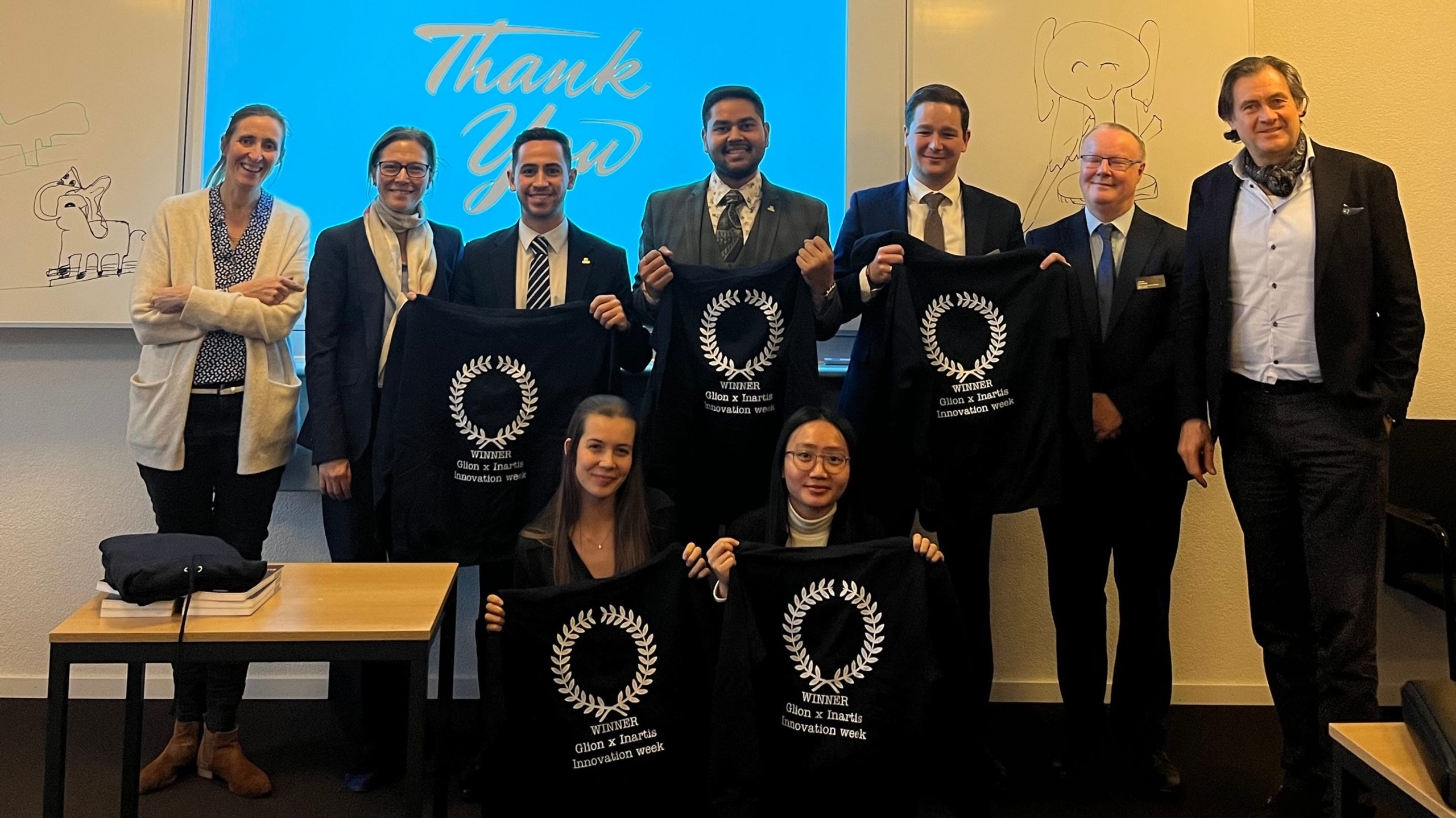
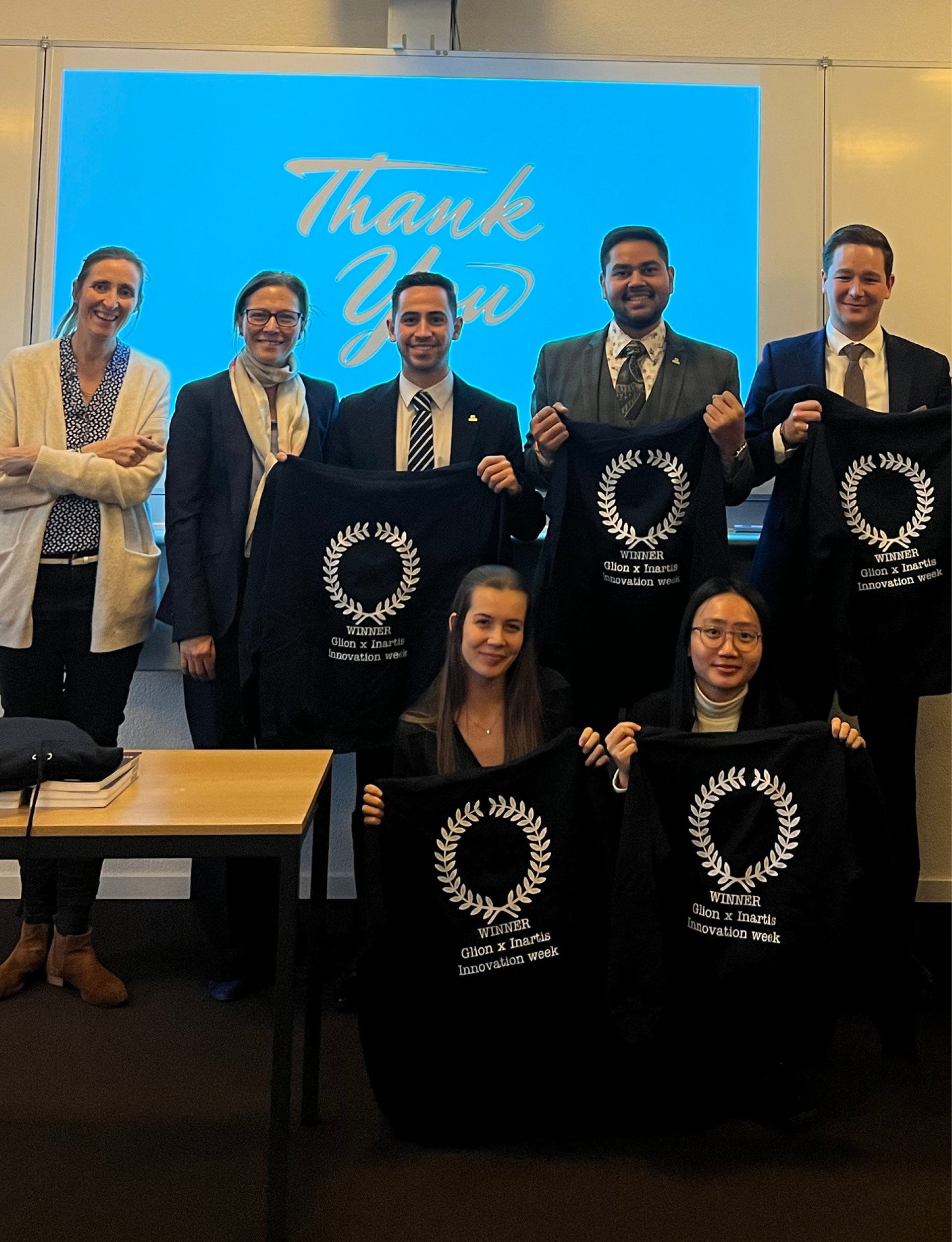

Our Innovation Week challenge gave Master’s students the chance to apply their skills to the serious business of creating innovative solutions for the Montreux Comedy Festival.
Experiential learning, thinking outside the box and applying theory to solve real-world problems are key aspects of our Master’s programs. And our recent Innovation Week gave students of the Hospitality, Entrepreneurship and Innovation degree the opportunity to demonstrate all three in a project run in association with Foundation Inartis to optimize customer experience at the Montreux Comedy Festival.
As part of the hands-on learning experience, students were tasked with identifying gaps or problems that could hinder the smooth running of the event and the overall client experience, as well as developing innovative solutions or ideas for improvement. From wearable mood trackers and instant translation tools to online personal assistants and interactive audience participation apps, our Master’s students gave their imaginations free rein.
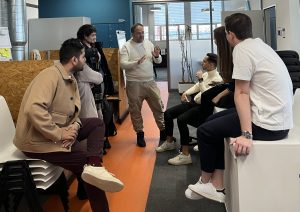
Having chosen the best seven ideas from more than 30, students then formed groups to develop each solution with the guidance of faculty, experts and coders. Throughout the rest of the week, the various groups prototyped and tested their innovative ideas before pitching them in front of the client.
In-show improvements
Three of the groups taking part in the project focused on client experience optimization and engagement improvement during shows, with two of these – named AudioSync and ShareSound – looking at how to overcome language barrier issues.
While AudioSync sought to provide headphones for audience members through which they would hear comedians telling translated versions of their jokes in real time, ShareSound aims to install headrests in the auditorium seats that feature speakers that broadcast the show in the audience member’s mother tongue.
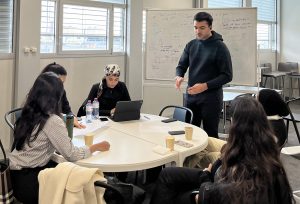
The group presenting the project All-E took a different angle with a wearable wristband that tracks audience members’ moods and provides instantaneous feedback to performers or organizers that can be evaluated in real time or after the event.
Dewiana Utami, who was part of the group behind the All-E idea, says: “Throughout this project, I was able to apply methods we have previously learned in class such as ideation, business canvas model and creating pitch presentations.
“The week really gave us all a taste of how to create a start-up, which at its core is about collaborating with team members to solve a problem within a limited timeframe and persuade investors to believe in the idea. It’s amazing what we managed to achieve in just three days and the experience has made me much more confident in my ability to tackle business challenges in the future.”
Audience participation
Three of the proposed solutions focused on improving the user experience before the start of the show. While the aptly named EZ-Q project sought to solve the problem of crowd management by providing an app through which attendees can book parking, buy drinks or purchase express entry, Deevent provides users with a personal assistant that can answer any pre-event questions they may have, such as what time the show starts.
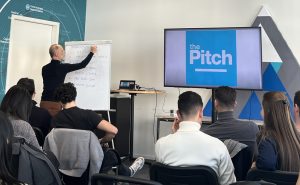
The team behind IceBreak – an app-based game solution that entertains audiences just before the show starts – took their presentation to another level and put on what one student described as an ‘unforgettable performance’ to demonstrate the importance of building engagement.
Looking at events from a different perspective, students who were part of the SmartSpecs project proposed wearable technology for organizers. Worn by volunteers at the events, the technology-enabled glasses would display guest details to make it easier for staff to provide personalized services.
“I found my classmates’ pitches to be incredibly diverse and fascinating,” says SmartSpecs team member Emilio Bastón. “Each project showcased a unique blend of creativity, innovation and problem-solving skills and I found taking part provided a practical application of various elements I learned in class, for instance, integrating design thinking to develop a viable product.”
Real-world application
As well as outlining how their innovations could benefit the Montreux Comedy Festival, students also focused on the route-to-market and scalability of their ideas beyond the Swiss market.
Throughout the week, they worked alongside coaches, prototyping experts and coders to develop and refine their solutions.
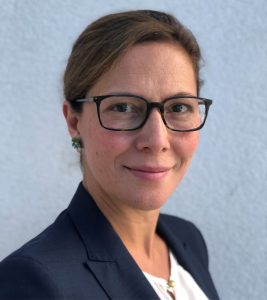
“The Innovation Week is an intense experiential learning that allows students to create novel ideas to a well-defined client problem in a short timeframe,” says Mariam Megally, Program Director, Master’s in Hospitality Entrepreneurship and Innovation. “We encourage them to think outside the box and apply the Design Thinking methodology to define, test, prototype and finally pitch a customer-centric innovation to the client.
“Through a mix of teamwork and theoretical sessions, students develop the key hard and soft skills required to successfully innovate in the hospitality sector. On the evidence of these presentations, it’s encouraging to see those competencies shining through in what was a difficult but entertaining challenge in a real-world context.”
Enhance your entrepreneurial expertise
Our Master’s in Hospitality, Entrepreneurship and Innovation takes you on a journey of innovation and entrepreneurship, from idea to business model and then to market.
















